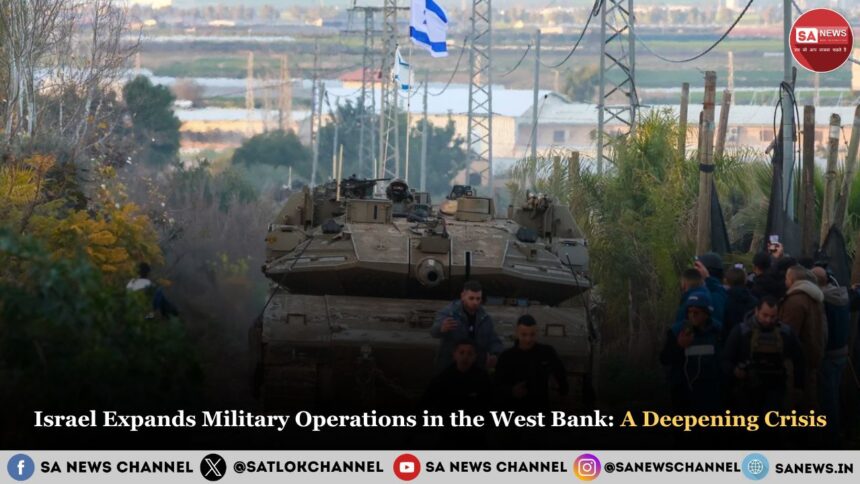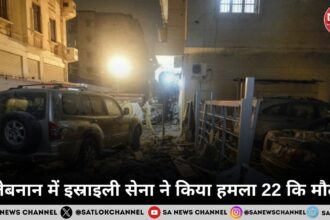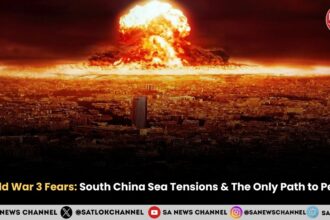In a significant escalation of military activity, Israel has intensified its operations in the West Bank, deploying tanks for the first time since 2002. This move is part of a broader offensive aimed at combating Palestinian militancy, which has led to widespread destruction and displacement in urban areas. The situation has drawn international attention and raised concerns about the humanitarian impact on the Palestinian population.
The Operation: “Iron Wall” Offensive
The Israeli Defense Forces (IDF) launched a large-scale military operation, dubbed “Iron Wall,” targeting militant groups in the West Bank. The operation began on January 21, 2025, shortly after a ceasefire with Hamas in Gaza took effect. The primary focus has been the Jenin area, a long-standing center of armed resistance against Israel.
The IDF has stated that the operation aims to neutralize militant infrastructure and eliminate imminent threats to Israeli security. This marks one of the most aggressive military campaigns in the region in recent years.
Deployment of Tanks: A Significant Escalation
One of the most notable aspects of this operation is the deployment of tanks in the West Bank. This is the first time since the end of the second intifada in 2005 that tanks have been used in the region. The decision underscores the severity of the situation and the Israeli government’s determination to stamp out militancy.
Also Read: World War 3 In Making: Iran-Israel War Fueling Global Unrest
Israeli Defense Minister Israel Katz announced that troops will remain in certain areas of the West Bank for the next year to prevent the resurgence of terrorism. This prolonged military presence raises concerns about the long-term impact on the region’s stability.
Humanitarian Impact: A Growing Crisis
The military operations have had a profound impact on the Palestinian population. Tens of thousands of Palestinians have been forced to flee their homes, with the United Nations confirming that around 40,000 people have been displaced.
Key Humanitarian Concerns
- Displacement: Residents of refugee camps in Jenin, Tulkarm, and Nur Shams have been evacuated, with many unable to return to their homes.
- Destruction of Infrastructure: Homes, schools, and hospitals have been destroyed, leaving many without shelter or basic necessities.
- Civilians at Risk: The use of heavy military equipment in densely populated areas raises the risk of civilian casualties.
The humanitarian crisis in the West Bank is worsening, with urgent needs for food, water, and medical supplies.
International Response: Calls for Ceasefire
The international community has expressed deep concern over the escalating violence. The United Nations and various human rights organizations have called for an immediate cessation of hostilities and the protection of civilians.
The Palestinian foreign ministry has condemned the Israeli actions, describing them as a “dangerous escalation” and urging the international community to intervene. Meanwhile, global leaders are calling for renewed diplomatic efforts to address the root causes of the conflict.
Conclusion:
The recent escalation in the West Bank highlights the tragic consequences of human conflict. Sant Rampal Ji Maharaj teaches that true peace comes from compassion, forgiveness, and devotion to God.
He emphasizes that violence stems from ignorance of spiritual truths and that only by following Sat Bhakti (true devotion) can humanity overcome hatred. The suffering of innocent civilians is a reminder of our shared humanity and the need to seek divine guidance. As Sant Rampal Ji Maharaj says, “Only the Supreme God’s grace can bring lasting peace.”









